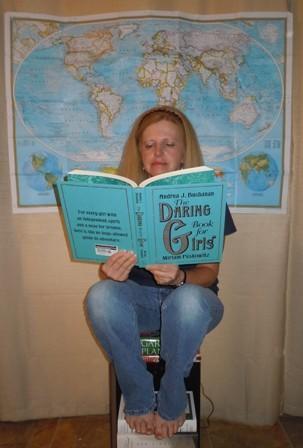Cheryl Hughes: Personal Narrative
I have often told my son-in-law, Thomas, that I wish his mom, Jean, lived next door to me. Jean is kind and open and all about doing the right thing. She has a strong faith and a positive outlook. In the past, I have looked at people like her and thought, “She must have had good parents and a stable upbringing.” I have learned to think differently. Often, it is people who have had personal tragedy who create stability for themselves and those around them.
Jean’s mother passed away when Jean and her sister, Penny, were in their teens. Jean has always been Penny’s protector, helping Penney raise her only child, a daughter. One month after Jean’s and Penny’s mother passed, their father remarried. The relationship with their dad never recovered. Thomas said he met his grandfather only once, although the man lived a mere five streets down from where he and his brothers grew up.
Years later, as Jean’s father lay in a coma, Jean made the choice to try to heal the division. She went to her father’s bedside and stayed with him. Her dad’s other family was there, as well, and they told her it would be best if she left. Jean stayed. The other family insisted she leave. Jean told them the only way she was leaving was by way of a police escort out of the hospital. The other family backed down. Jean stayed until her father passed. He never regained consciousness, but Jean made her peace with him. She knew her peace was dependent upon her choice, not upon his.
I read once, if you are stuck, you have to revise your personal narrative—the story you tell yourself and others—in order to move forward. On Friday evening, I watched the premier of “This Holding,” presented by Oz Arts in Nashville (the music and vocals were the creative production of Jemal Hines and Moksha Sommer of HuDost). The first scene opened with a dancer pulling a long line of sculptures up an incline. The sculptures were cloth filled with barley, the weight substantial. As she pulled, the sculptures became too heavy for the dancer. She stopped and wrapped the weights around her body, but she soon became overwhelmed by the burden and couldn’t move at all.
As I watched, I was reminded of scenes from my own life in which I moved under a heavy load, unable or unwilling to cast it off or to ask for help. “There was no one to help me,” I say. Maybe, there wasn’t or maybe, I didn’t know how to ask or to believe I was worthy of help.
“What if I cause other people suffering by asking for help?” That was a moral toe-stub for me. I found it hard to get past that one, because inevitably it will take other people’s time and effort to help me. I worried about the outcome. “What if my project doesn’t come to fruition and the person helping me thinks it was a waste of their time?” That was my great fear. Wasted time. I have not idea where that fear comes from, unless it’s one of those race-memory issues passed down through my ancestors, the British. The British have always been the make-it-happen, make-it-count people of the world.
As I began to age, my personal narrative began to change. It wasn’t only the wisdom that comes with age that changed it. It was physical inability. I have to have help to do some of the simplest things. Although, I’m tired of being tired, physical limitations have given me a balance I have never before had. I have always been able to offer help to others, but now, I can receive help as well. My personal narrative has become one of collaboration with others, not one of suffering alone.



























